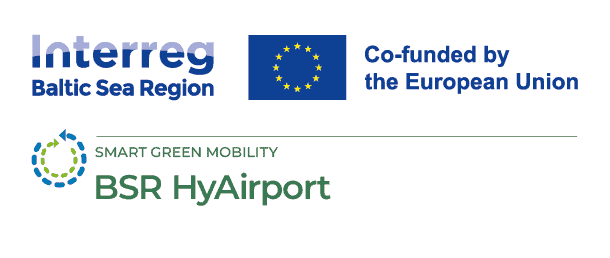
Shaping the Future: European Experts Explore Hydrogen's Role in Aviation at Vilnius Airport Meeting
11 September 2024
For two days (10-11 September), Vilnius airport hosted a meeting of European aviation experts, focusing on the use of hydrogen in airports and other parts of aviation. Dozens of experts gathered at the Vilnius Airport Conference Centre to share their experiences and discuss how developments in the hydrogen industry could impact the aviation sector.
The two-day event in Vilnius is part of the international BSR HyAirport project, with a total of 15 different airports and aviation sector organisations as partners.
“Future solutions can come into practice much faster than most of us think, which is why promoting advances in hydrogen technology is an important part of Europe’s Green Deal. We are continuously following and working with partners in Europe to analyse how the latest scientific breakthroughs in hydrogen production, transport and use can be applied to aviation. We are delighted to bring together aviation leaders to share the latest knowledge and organise workshops where we tackle real-world problems – from potential legal issues to technological challenges,” comments Valdas Stropus, Head of Operations at Lithuanian Airports (LTOU).
Around 30 experts from Germany, Sweden, Lithuania, Latvia, Poland and other countries worked intensively in groups at Vilnius Airport, addressing legal challenges, the supply, storage and processing of green hydrogen, and finally the use of this material in airports, aircraft and elsewhere. A meeting of the project partners presented the progress of the project, discussed the issues of the working groups and the way forward.
Mr Stropus, Head of Operations at LTOU, pointed out that the vision of green hydrogen production in Europe is strongly linked to the development of renewable energy sources. He said that the development and application of the technology should also be important for Lithuania as a whole, which has recently updated its National Energy Independence Strategy.
The EU-wide scenario, reflecting the objective of transforming the economy into a modern, competitive and climate-neutral one, shows that Lithuania will aim not only to produce green hydrogen but also to export hydrogen derivatives. This, according to Mr Stropaus, reveals a strategic ambition to create a technological breakthrough, to which the aviation sector can also contribute by actively supporting the country’s economic growth and progress.
The BSR HyAirport project, which started at the end of last year, aims to find solutions to adapt airport infrastructure to hydrogen-powered aircraft in the future, to prepare airports to store, recycle and supply green hydrogen as a future energy source for aviation.






